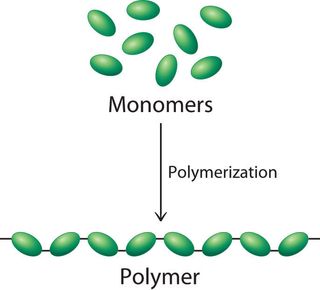Exploring the Varied Applications and Advantages of Polymers in Different Industries
Polymers, with their diverse series of properties and performances, have actually come to be indispensable in different industries, each enjoying distinct gain from their application. Polymers. From enhancing security and efficiency in the auto industry to changing clinical devices in the health care industry, polymers play a pivotal function. Their environment-friendly nature is modifying the landscape of sustainability techniques. As we delve right into the midsts of polymers in electronic devices, we reveal cutting-edge innovations, while their architectural honesty changes the realm of building and construction and framework. The prevalent impact of polymers across markets is a testimony to their adaptability and versatility, shaping the future of plenty of markets.
Automotive Field Applications
Polymers play a pivotal role in enhancing the efficiency and durability of different elements within the vehicle market. One noticeable usage of polymers in the automotive industry is in the manufacturing of light-weight components.

Healthcare Industry Benefits
In different health care applications, the advantages of using polymers are extensively recognized for their diverse variety of beneficial buildings. Polymers play a vital duty in the health care market as a result of their flexibility, biocompatibility, and cost-effectiveness. Among the primary advantages of polymers in health care is their capability to be customized to details demands, such as versatility, durability, and biodegradability, making them suitable for a wide variety of clinical applications.
Polymer-based products are thoroughly used in clinical gadgets, such as catheters, implants, prosthetics, and drug distribution systems, due to their biocompatibility and capability to mimic natural cells. These materials can minimize the risk of sensitive responses or denials, boosting patient safety and end results. Additionally, polymers are light-weight, making them ideal for wearable clinical tools and guaranteeing person convenience.
In addition, polymers allow the advancement of ingenious treatment approaches, such as hydrogels for cells engineering and nanocomposites for targeted medicine shipment. Their simplicity of processing and sanitation makes them important for keeping high criteria of hygiene in healthcare settings. In general, the varied benefits of polymers contribute substantially to improvements in medical technology and client treatment.
Ecological Advantages of Polymers

In addition, polymers can add to power cost savings due to their lightweight nature. In sectors such as transport, lightweight polymer products can help decrease fuel consumption and greenhouse gas exhausts. Furthermore, polymers can enable the development of energy-efficient products such as insulation products that improve power preservation in buildings.
Furthermore, polymers play an essential duty in decreasing water pollution. For example, the use of polymer-based filtration systems can properly eliminate toxins and contaminants from wastewater, guarding water sources and ecological communities. On the whole, the ecological benefits of polymers make them valuable assets in promoting sustainability and environmentally friendly methods throughout numerous markets.
Polymers in Electronic Devices and Technology
Taking into consideration the enhancing demand for innovative and lasting services in contemporary Continue industries, the assimilation of sophisticated polymer modern technologies in the realm of electronic devices and modern technology has actually become a crucial method for driving efficiency and efficiency. Polymers have actually changed the electronic devices sector by allowing the manufacturing of lighter, a lot more versatile, and durable digital tools. From smart devices to clinical gadgets, polymers play a crucial role in improving item design and capability.
One significant advantage of polymers in electronic devices is their shielding homes, which assist protect fragile electronic components from environmental factors and electric disturbance. Additionally, polymers are essential in the growth of adaptable screens, wearable innovation, and published electronic devices, supplying countless opportunities for producing clever and interconnected tools.
Furthermore, the use of polymers in digital product packaging has actually caused innovations in miniaturization and thermal administration, enhancing the overall performance and dependability of digital systems. As technology remains to evolve, the versatility and adaptability of polymers will certainly drive better technology in the electronics sector, shaping the future of technology.
Duty of Polymers in Construction and Facilities
The combination of advanced polymer products in building and construction and facilities jobs has reinvented the way frameworks are created and integrated in contemporary times. Polymers supply various advantages in the building and construction market as a result of their adaptability, resilience, and cost-effectiveness. One crucial function of polymers in construction is about his their use in layers and sealers, giving security versus ecological factors such as moisture, look at here UV radiation, and deterioration. Additionally, polymers are made use of in the production of light-weight and high-strength composite products, enhancing the structural stability of buildings while reducing total weight.
Additionally, polymers play a vital duty in lasting building and construction techniques by allowing the growth of energy-efficient frameworks. Shielding materials made from polymers assist control indoor temperature levels, reducing the demand for heating and cooling systems and ultimately decreasing energy usage. The usage of polymer-based composites in facilities tasks such as bridges and roadways improves their long life and lowers upkeep prices. Generally, the unification of polymers in building and facilities showcases their substantial effect on modern-day design practices.
Conclusion
In verdict, polymers play an important function in various markets such as automotive, medical care, ecological, electronics, and building and construction. From boosting gas effectiveness in vehicles to enhancing medical tools, polymers offer many advantages.